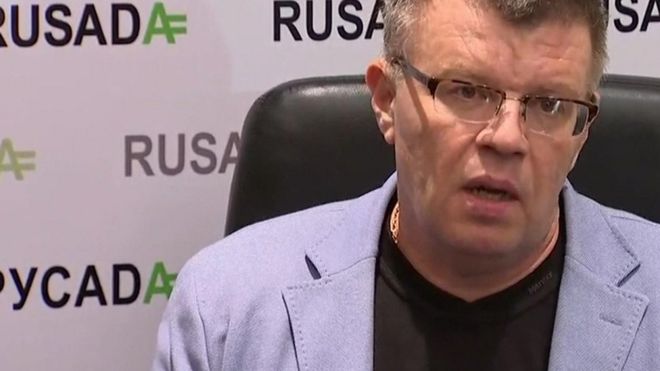
“The Kremlin strategy is simple: awards for individuals, finances for parties, and gas for countries”.
All with simple goals: promote divisiveness, sow confusion and promote Russia. Information is the weapon, cash is a tool, promoting Russia is the goal.
Russia does not play well with others. Perhaps Russia needs to be treated like a petulant child and made to sit in the corner.
</end editorial>
Prague, Feb 9 (CTK) – Czech Communist (KSCM) politician Jiri Mastalka, who is rather unknown in his homeland, was decorated by President Vladimir Putin for his defence of Russia and its interests in the European Parliament (EP), David Klimes wrote in daily Hospodarske noviny (HN) on Tuesday.
Why did the relatively insignificant MEP Mastalka receive the highest Russian decoration that a foreigner may get, the Order of the Friendship, for his contribution to Czech-Russian relations? Klimes asks.
He says Mastalka is a perfect example of how Putin provokes conflicts and challenges the consensus in the European Union.
The Kremlin strategy is simple: awards for individuals, finances for parties, and gas for countries, Klimes writes.
Mastalka cannot influence whether this or that country will drop the sanctions imposed on Russia, but he has been a very useful advocate of Russian interests in the European Parliament for a long time, Klimes writes.
When the EP passed a sharp resolution against the imprisonment of Russian activist Alexei Navalny, it was Mastalka who defended the Russian steps the most firmly: “The court verdict on the Navalny brothers cannot be considered manipulated without evidence,” he said. Mastalka also showed surprise that other MEPs mind that Russian NGOs must report to the authorities whether they get money from the West, Klimes writes.
When the EP was discussing a report on Russia, Mastalka strongly disagreed with it: “It blames Russia for almost all sins that one can imagine.”
Mastalka remains an ardent defender of Moscow even though Putin’s Russia becomes increasingly aggressive. When the EP discussed free trade with Georgia, Moldova and Ukraine, Mastalka criticised the European Commission for not taking into account the historical relations in the region, including ties to Russia, Klimes writes.
Last year, Mastalka did not support the EP criticism of a Kyrgyz law against “homosexual propaganda” because he said “sexual exhibitionism of any kind is an uncultured expression of freedom” and “a source of pointless and growing conflicts.” In his speech he even regretted the dissolution of the Soviet Union: “The economic and social slump following the dissolution of the Soviet Union is the essential reason of the worsening of the position of women.”
If one looks at the latest list of those decorated by the Russian Oder of Friendship, one can see that Putin’s challenging of the common EU stances has been well considered, he says.
Along with Mastalka, Austrian Vice Chancellor and Economy Minister Reinhold Mitterlehner received the order and he could immediately show his gratitude to Putin during his official visit to Moscow where he declared that the EU sanction policy did not help to any progress. In exchange, Russia promised that the Austrian oil processing company OMV would further cooperate on the Nord Stream 2 pipeline, Klimes writes.
Mitterlehner has faced some criticism in Austria for anti-European stances. Mastalka seems unlikely to be criticised in the Czech Republic where nobody knows about his addresses in the EP that undermine the European criticism of the Kremlin.
Individuals are attracted to see the world in the pro-Kremlin way by various decorations or excursions (two other Czech KSCM lawmakers visited the separatists in the Donetsk republic in January, for example), while political parties are interested only in money. Even the U.S. intelligence believes that money flows from Russia to the West and that it is a problem, Klimes writes.
In 2014, the Hungarian Jobbik, the Greek Golden Dawn, the Italian Northern League and the French National Front received loans from Russian banks.
Putin tries to break the European unity on anti-Russian sanctions by favouring some EU politicians, for example Hungarian Prime Minister Viktor Orban. Greece is another potential ally. Though Putin refused to lend money to Greek PM Alexis Tsipras last year, he cordially welcomed Greek President Prokopis Pavlopoulos in January. Pavlopoulos then said he hoped the Russia-EU relations would improve, Klimes writes.
There are more such European politicians whom Putin tries to please, Klimes says, adding that it is well-known how Russia-loving Czech President Milos Zeman is.
Last week, Putin praised the special Bavarian-Russian relations in Moscow during the visit of Bavarian Prime Minister Horst Seehofer who has been opposing Chancellor Angela Merkel in refugees affairs, and Seehofer seemed very happy about it, Klimes writes.
Copyright 2015 by the Czech News Agency (ČTK). All rights reserved.
Copying, dissemination or other publication of this article or parts thereof without the prior written consent of ČTK is expressly forbidden. The Prague Daily Monitor is not responsible for its content.
Source: http://www.praguemonitor.com/2016/02/10/hn-putin-awards-czech-advocate-russian-interests-ep
Filed under: #RussiaFail, CounterPropaganda, Information operations, Information Warfare, Propaganda, Russia Tagged: #RussiaFail, #RussiaLies, counter-propaganda, CounterPropaganda, information warfare, Russia, Russian propaganda
 At first glance the sale of Opera response might be “so what”?
At first glance the sale of Opera response might be “so what”?
 Russia is not bombing Daesh targets as much as it is fighting Assad rebels.
Russia is not bombing Daesh targets as much as it is fighting Assad rebels.


 Sample size: 16.
Sample size: 16.

 Dr. Waller’s insight is reflected in this excellent article, damning of overall US information efforts.
Dr. Waller’s insight is reflected in this excellent article, damning of overall US information efforts. (Translated by my Chrome browser)
(Translated by my Chrome browser)


 Russia says do as we say, not as we do.
Russia says do as we say, not as we do.
 By
By 


 Source:
Source: 
 Russia’s former Anti-doping chief is dead.
Russia’s former Anti-doping chief is dead.







